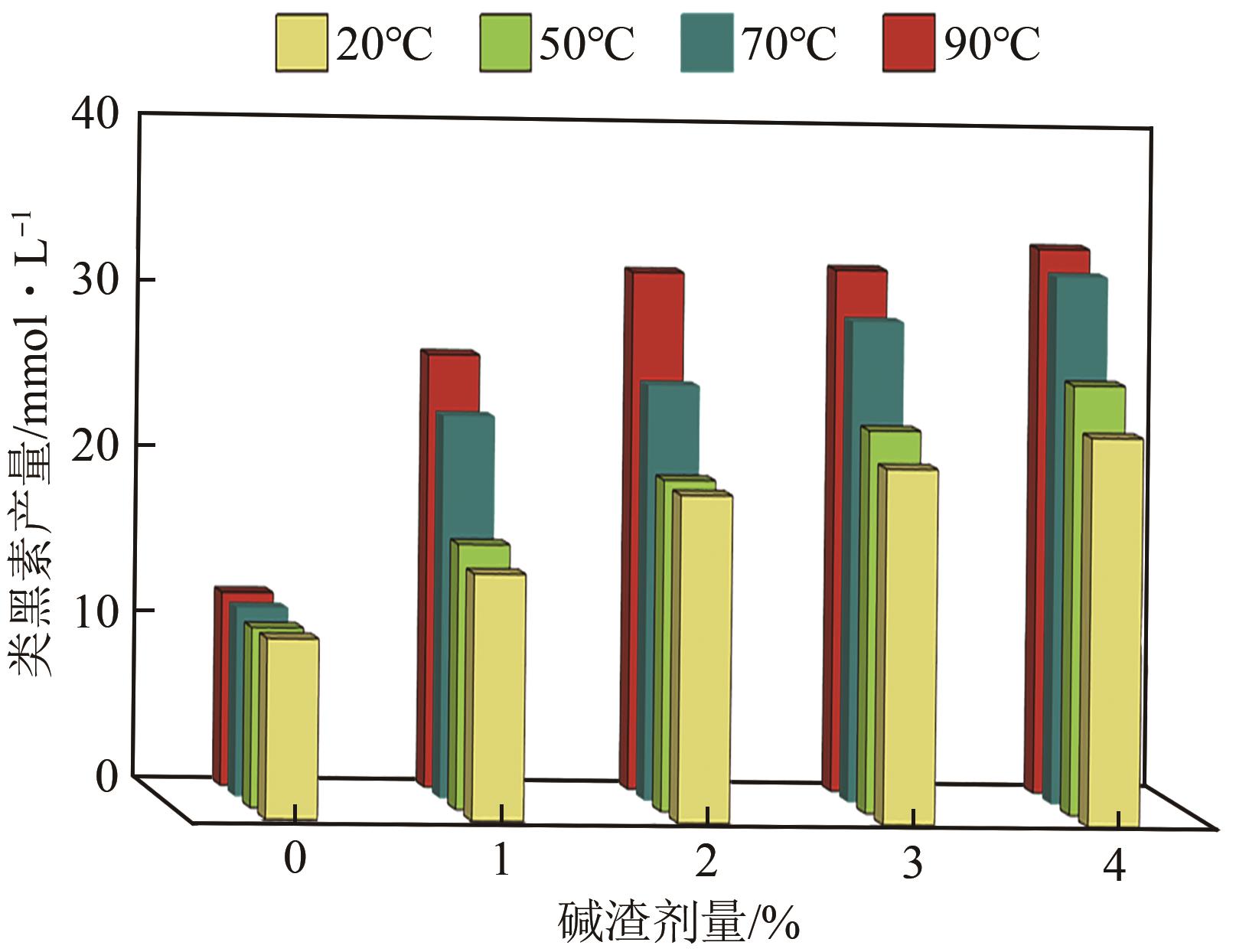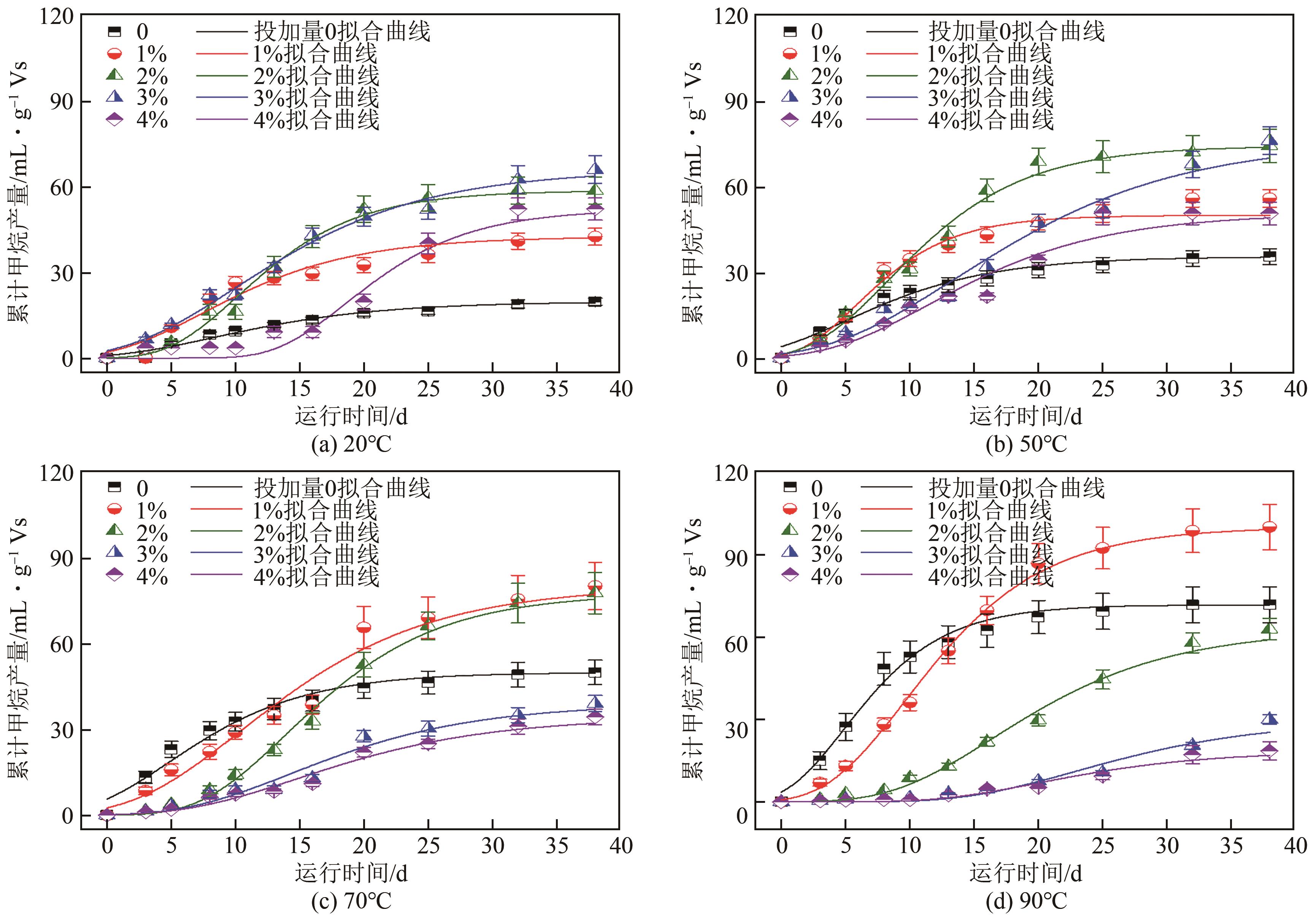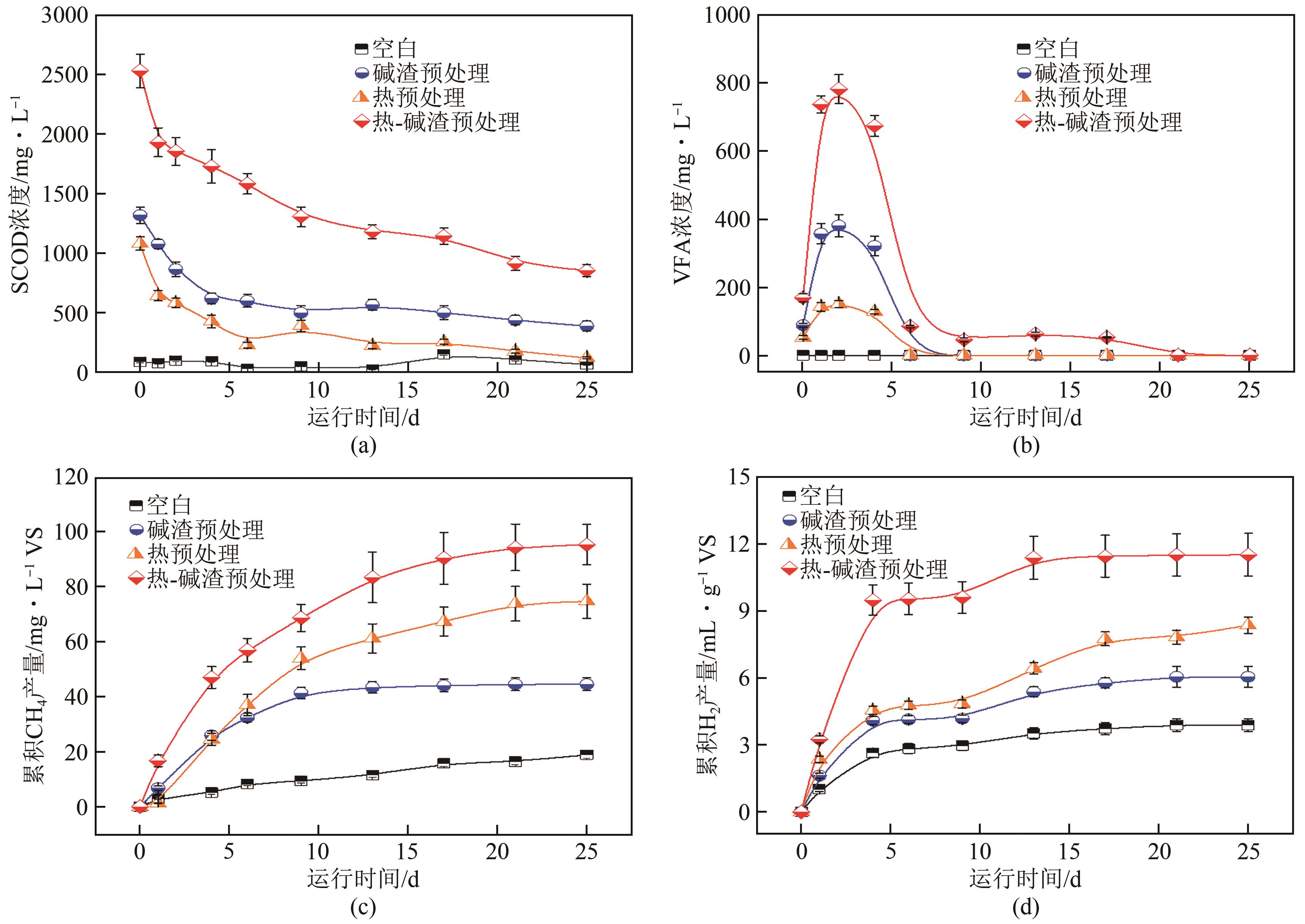| 1 |
刘发强, 曲天煜, 张媛. 炼油厂含油污泥处理技术进展[J]. 工业水处理, 2017, 37(12): 1-5.
|
|
LIU Faqiang, QU Tianyu, ZHANG Yuan. Technical progress in the treatment of oil-bearing sludge in refineries[J]. Industrial Water Treatment, 2017, 37(12): 1-5.
|
| 2 |
LIZAMA Alfredo Córdova, FIGUEIRAS Cristian Carrera, HERRERA Rafael Rojas, et al. Effects of ultrasonic pretreatment on the solubilization and kinetic study of biogas production from anaerobic digestion of waste activated sludge[J]. International Biodeterioration & Biodegradation, 2017, 123: 1-9.
|
| 3 |
MAHMOODI Peyman, KARIMI Keikhosro, TAHERZADEH Mohammad J. Hydrothermal processing as pretreatment for efficient production of ethanol and biogas from municipal solid waste[J]. Bioresource Technology, 2018, 261: 166-175.
|
| 4 |
XIAO Benyi, LIU Cao, LIU Junxin, et al. Evaluation of the microbial cell structure damages in alkaline pretreatment of waste activated sludge[J]. Bioresource Technology, 2015, 196: 109-115.
|
| 5 |
LIN Feng, ZHU Xiaolin, LUO Yong, et al. Improvement of activated sludge dewatering properties using green conditioners: Chitosan hydrochloride and lysozyme[J]. RSC Advances, 2019, 9(12): 6936-6945.
|
| 6 |
阮敏, 孙宇桐, 黄忠良, 等. 污泥预处理-厌氧消化体系的能源经济性评价[J]. 化工进展, 2022, 41(3): 1503-1516.
|
|
RUAN Min, SUN Yutong, HUANG Zhongliang, et al. Energy economy evaluation of sludge pretreatment-anaerobic digestion system[J]. Chemical Industry and Engineering Progress, 2022, 41(3): 1503-1516.
|
| 7 |
徐慧, 王素芳, 丁秋炜, 等. 高硫炼油碱渣废水处理技术研究[J]. 清洗世界, 2019, 35(4): 68-70.
|
|
XU Hui, WANG Sufang, DING Qiuwei, et al. Study on treatment technology of high sulfur refinery alkali residue wastewater[J]. Cleaning World, 2019, 35(4): 68-70.
|
| 8 |
LI Jin, WANG Qinghong, LIANG Jiahao, et al. An enhanced disintegration using refinery spent caustic for anaerobic digestion of refinery waste activated sludge[J]. Journal of Environmental Management, 2021, 284: 112022.
|
| 9 |
侯银萍, 蔡斌斌, 张安龙, 等. 不同预处理方法促进剩余污泥破胞及厌氧消化产气效率的研究[J]. 陕西科技大学学报, 2022, 40(2): 13-19, 27.
|
|
HOU Yinping, CAI Binbin, ZHANG Anlong, et al. Research on promoting sludge cracking and the biogas production efficiency of anaerobic digestion by different pretreatment methods[J]. Journal of Shaanxi University of Science & Technology, 2022, 40(2): 13-19, 27.
|
| 10 |
ZOU Xuemei, YANG Ruijie, ZHOU Xu, et al. Effects of mixed alkali-thermal pretreatment on anaerobic digestion performance of waste activated sludge[J]. Journal of Cleaner Production, 2020, 259: 120940.
|
| 11 |
唐心漪, 陈翔宇, 肖本益, 等. 剩余污泥热碱处理及其对污泥厌氧消化的强化研究进展[J]. 环境工程, 2022, 40(5): 218-226.
|
|
TANG Xinyi, CHEN Xiangyu, XIAO Benyi, et al. Thermal-alkaline treatment of sewage sludge and its enhancement on anaerobic sludge digestion[J]. Environmental Engineering, 2022, 40(5): 218-226.
|
| 12 |
国家环境保护总局,水和废水监测分析方法编委会编. 水和废水监测分析方法[M]. 4版. 北京: 中国环境科学出版社, 2002.
|
|
State Environmental Protection Administration. Water and wastewater monitoring and analysis method [M]. 4th edition. Beijing: China Environmental Science Press, 2002.
|
| 13 |
SIEDLECKA Ewa, KUMIRSKA Jolanta, OSSOWSKI Tadeusz, et al. Determination of volatile fatty acids in environmental aqueous samples[J]. Polish Journal of Environmental Studies, 2008, 17(3): 351-356.
|
| 14 |
李晋, 谢萍, 陈平, 等. 废白土热解残渣强化炼化剩余污泥水热液厌氧产能[J]. 工业水处理, 2022, 42(12): 65-71, 77.
|
|
LI Jin, XIE Ping, CHEN Ping, et al. Enhancement of anaerobic digestion of refinery excess sludge hydrothermal liquid by pyrolytic residue of spent bleaching earth[J]. Industrial Water Treatment, 2022, 42(12): 65-71, 77.
|
| 15 |
王慧迪, 张伟军. 活性污泥水热过程中产生的类黑素对酶活性的影响机制[C]//中国环境科学学会. 全国污泥处理、处置与资源化利用交流研讨会. 张家港, 2019: 103-112.
|
|
WANG Huidi, ZHANG Weijun. Mechanism of melanoidins products during hydrothermal process of activated sludge on enzyme activity[C]//Chinese Society for Environmental Sciences. National Symposium on Sludge Treatment, Disposal and Resource Utilization. Zhangjiagang, 2019: 103-112.
|
| 16 |
张广彩, 于会彬, 徐泽华, 等. 基于三维荧光光谱结合平行因子法的蘑菇湖上覆水溶解性有机质特征分析[J]. 生态与农村环境学报, 2019, 35(7): 933-939.
|
|
ZHANG Guangcai, YU Huibin, XU Zehua, et al. The characteristics of dissolved organic matter in the overlying water of moguhu lake based on three dimensional fluorescence spectrum and parallel factor method[J]. Journal of Ecology and Rural Environment, 2019, 35(7): 933-939.
|
| 17 |
肖本益, 阎鸿, 魏源送. 污泥热处理及其强化污泥厌氧消化的研究进展[J]. 环境科学学报, 2009, 29(4): 673-682.
|
|
XIAO Benyi, YAN Hong, WEI Yuansong. State of the art of thermal sludge pretreatment and its enhancement for anaerobic sludge digestion[J]. Acta Scientiae Circumstantiae, 2009, 29(4): 673-682.
|
| 18 |
代勤, 张文哲, 于潘芬, 等. 热、热碱处理对污泥溶胞和溶解性有机物的影响[J]. 环境科学, 2018, 39(5): 2283-2288.
|
|
DAI Qin, ZHANG Wenzhe, YU Panfen, et al. Effects of heat and heat-alkaline treatments on disintegration and dissolved organic matter in sludge[J]. Environmental Science, 2018, 39(5): 2283-2288.
|
| 19 |
LIU Xuran, XU Qiuxiang, WANG Dongbo, et al. Thermal-alkaline pretreatment of polyacrylamide flocculated waste activated sludge: Process optimization and effects on anaerobic digestion and polyacrylamide degradation[J]. Bioresource Technology, 2019, 281: 158-167.
|
| 20 |
郝晓地, 唐兴, 李季, 等. 腐殖酸影响剩余污泥厌氧消化过程实验研究[J]. 环境科学学报, 2018, 38(8): 3061-3068.
|
|
HAO Xiaodi, TANG Xing, LI Ji, et al. Experimental study on the effect of humic acid on the process of anaerobic digestion of excess sludge[J]. Acta Scientiae Circumstantiae, 2018, 38(8): 3061-3068.
|
| 21 |
LI Ji, HAO Xiaodi, VAN LOOSDRECHT Mark C M, et al. Effect of humic acids on batch anaerobic digestion of excess sludge[J]. Water Research, 2019, 155: 431-443.
|
| 22 |
YUAN Donghai, AN Yechen, HE Xiaosong, et al. Fluorescent characteristic and compositional change of dissolved organic matter and its effect on heavy metal distribution in composting leachates[J]. Environmental Science and Pollution Research, 2018, 25(19): 18866-18878.
|
| 23 |
SHAO Liming, WANG Xiaoyi, XU Huacheng, et al. Enhanced anaerobic digestion and sludge dewaterability by alkaline pretreatment and its mechanism[J]. Journal of Environmental Sciences, 2012, 24(10): 1731-1738.
|
| 24 |
WANG Shuai, HU Zhiyi, GENG Ziqian, et al. Elucidating the production and inhibition of melanoidins products on anaerobic digestion after thermal-alkaline pretreatment[J]. Journal of Hazardous Materials, 2022, 424: 127377.
|
| 25 |
CHEN Hong, YI Hao, LI Hechao, et al. Effects of thermal and thermal-alkaline pretreatments on continuous anaerobic sludge digestion: Performance, energy balance and, enhancement mechanism[J]. Renewable Energy, 2020, 147: 2409-2416.
|
| 26 |
LI Chunxing, ZHANG Guangyi, ZHANG Zhikai, et al. Alkaline thermal pretreatment at mild temperatures for biogas production from anaerobic digestion of antibiotic mycelial residue[J]. Bioresource Technology, 2016, 208: 49-57.
|
| 27 |
温佳欣. 腐殖酸对污泥厌氧消化及水解酶活性的影响研究[D]. 无锡: 江南大学, 2022.
|
|
WEN Jiaxin. Effects of humic acids on sludge anaerobic digestion and hydrolase activity[D]. Wuxi: Jiangnan University, 2022.
|
| 28 |
赵琛, 张列宇, 马涛, 等. UASB反应器对晚期渗滤液的碳氮协同削减效应[J]. 环境科学研究, 2019, 32(11): 1913-1920.
|
|
ZHAO Chen, ZHANG Lieyu, MA Tao, et al. The synergistic effect for C/N removal by UASB reactor on mature landfill leachate[J]. Research of Environmental Sciences, 2019, 32(11): 1913-1920.
|
| 29 |
KIMURA Hiroyuki, NASHIMOTO Hiroaki, SHIMIZU Mikio, et al. Microbial methane production in deep aquifer associated with the accretionary prism in Southwest Japan[J]. The ISME Journal, 2010, 4(4): 531-541.
|
| 30 |
SHAH H N, COLLINS M D. Genus bacteroides A chemotaxonomical perspective[J]. Journal of Applied Bacteriology, 1983, 55(3): 403-416.
|
| 31 |
CHEN Shuangya, SONG Lei, DONG Xiuzhu. Sporacetigenium mesophilum Gen. nov., sp. nov., isolated from an anaerobic digester treating municipal solid waste and sewage[J]. International Journal of Systematic and Evolutionary Microbiology, 2006, 56(4): 721-725.
|
| 32 |
FAISAL Shah, SALAMA El-Sayed, MALIK Kamran, et al. Anaerobic digestion of cabbage and cauliflower biowaste: Impact of iron oxide nanoparticles (IONPs) on biomethane and microbial communities alteration[J]. Bioresource Technology Reports, 2020, 12: 100567.
|
| 33 |
许晓晴, 陈烨, 甄毓, 等. 渤海沉积物中产甲烷途径及产甲烷菌群落特征[J]. 海洋地质与第四纪地质, 2022, 42(3): 50-61.
|
|
XU Xiaoqing, CHEN Ye, ZHEN Yu, et al. Methanogenic pathways and methanogen communities in the sediments from Bohai Sea[J]. Marine Geology & Quaternary Geology, 2022, 42(3): 50-61.
|
| 34 |
陈烨, 孙治雷, 吴能友, 等. 海洋沉积物中甲烷代谢微生物的研究进展[J]. 海洋地质与第四纪地质, 2022, 42(6): 82-92.
|
|
CHEN Ye, SUN Zhilei, WU Nengyou, et al. Advances in the study of methane-metabolizing microbial communities in marine sediments[J]. Marine Geology & Quaternary Geology, 2022, 42(6): 82-92.
|
| 35 |
XIAO Benyi, TANG Xinyi, YI Hao, et al. Comparison of two advanced anaerobic digestions of sewage sludge with high-temperature thermal pretreatment and low-temperature thermal-alkaline pretreatment[J]. Bioresource Technology, 2020, 304: 122979.
|
 ), 梁家豪2, 马文峰3, 郭绍辉1, 王庆宏1(
), 梁家豪2, 马文峰3, 郭绍辉1, 王庆宏1( ), 陈春茂1
), 陈春茂1
 ), LIANG Jiahao2, MA Wenfeng3, GUO Shaohui1, WANG Qinghong1(
), LIANG Jiahao2, MA Wenfeng3, GUO Shaohui1, WANG Qinghong1( ), CHEN Chunmao1
), CHEN Chunmao1






